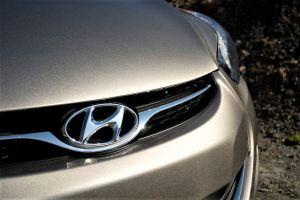Samsung, Hyundai Make Further Blockchain, Crypto Moves
Two of South Korea’s biggest conglomerates are set to step up their cryptocurrency and blockchain operations.

Samsung has already caught the interest of cryptocurrency enthusiasts this year with the release of its new flagship smartphones, which feature crypto wallet functions. And the company’s IT services arm, Samsung SDS, has now revealed an Ethereum-powered blockchain solution that it says will allow logistics and shipping companies, port and custom authorities to use distributed ledger technology for international imports and exports.
The company says that it has developed the solution, named Deliver, in conjunction with the Port of Rotterdam – a keen advocate of blockchain technology – and ABN AMRO, one of the largest banks in the Netherlands, that is gauging customers’ interest in offering cryptocurrency wallets. The three parties carried out a pilot for the project in October last year.
Samsung SDS also says it will begin using blockchain technology for Samsung Electronics’ European exports, reports Fn Today.
Samsung SDS also announced last week that its solution can “link” blockchain platforms, stating that Deliver has already established a “connection” between the Korea Customs Service, which uses the Hyperledger Fabric platform, and the Port of Rotterdam, which uses the Ethereum platform.
Fn Today adds that Samsung SDS is seeking to finalize deals with further blockchain partners “within 2019.”
Meanwhile, the Hyundai Group’s de facto blockchain subsidy Hdac Technology appears set to integrate its Switzerland-based cryptocurrency operations with a forthcoming company-wide point system – and is planning a stablecoin.
The company has already launched the Hdac Coin cryptocurrency, holding an initial coin offering (ICO) in Switzerland in late 2017. Now Hdac says it will let customers buy H-Point points with Hdac Coin to pay for Hyundai goods and services, per Viva 100. Hyundai operates a wide range of department stores and shops throughout South Korea, in addition to its Hyundai and Kia motor brands, and a major construction business.
The company’s CTO says the H-Point program will let users pay for their utility bills, and eventually wants to develop an H-Point stablecoin.
Elsewhere in the South Korea, the government is also looking to extend its blockchain operations, and is looking to gauge public feedback on its blockchain pilots. Per Sky eDaily, the Ministry of Science and Technology announced on Sunday that it is looking to recruit 30 members of the public with “basic knowledge and interest in blockchain technology” to provide the government with opinions on their experience of “public and private pilot projects.”
And elsewhere in the country, APM, a chain of stores in Seoul’s busiest shopping district, says it is planning to launch blockchain technology operations and an “internal cryptocurrency” that will let shoppers pay for goods and services.
APM company rakes in some USD 9 billion a year, and is particularly popular among Chinese tourists. According to eDaily, APM plans to funnel a whopping 10% of its monthly revenue into a subsidy that will handle its blockchain technology-related operations.




